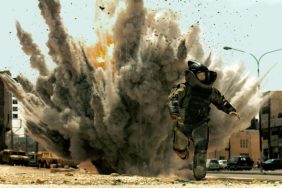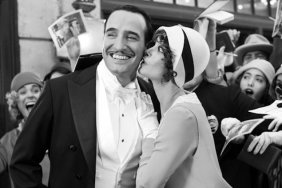In the weeks running up to the Academy Awards, all of Los Angeles – and most of the world – goes a little frantic with hype and speculation. This year, the mad argument is over whether Birdman or Boyhood will win Best Picture and/or Best Director, how the two will split the two categories, etc. etc. etc. My own piece of speculation: Richard Linklater will win Best Director, but Birdman will win Best Picture. No other films are going to come close, not even Selma. But one week after the Oscars, none of this will matter. The Best Picture will be declared, we’ll all move on with our lives, and we’ll cease vaunting one film over the other.
Check Out: Best Movie Ever: The Best Best Picture
Indeed, Best Picture winners tend to fade rapidly in the mass memory. Some Best Picture winners remain cultural and cinematic touchstones for the ages (Casablanca, The Silence of the Lambs, Titanic), but you may notice that most Best Picture winners almost immediately fade into historical footnotes. While the tempest of Oscar hype is currently at its most powerful, this will be a good time to bring up some of the Best Picture winners that, well, no one ever talks about anymore. Indeed, some of these films, you have to fight to remember at all.
So let’s jog our memories a bit, and try to recall the Best Picture winners that, had they not won Best Picture, would not be notable at all.
Slideshow: 9 Best Picture Winners That Time Forgot
Witney Seibold is a contributor to the CraveOnline Film Channel, and co-host of The B-Movies Podcast. You can follow him on “Twitter” at @WitneySeibold, where he is slowly losing his mind.
10 Best Picture Winners That Time Forgot
-
Cavalcade (1933)

I watched Cavalcade for the first time only last year, and I barely remember a thing about it. Based on a play by Noel Coward and directed by Frank Lloyd (who would go one to make the much superior Mutiny on the Bounty in 1935), Cavalcade is a family drama about a wealthy London family trying to survive the dramatic events that happen in between 1900 and the present (1933). I have to fight to remember the characters, the story, or even the film's general tone. Cavalcade is never ever talked about outside of Oscar articles. Not even Noel Coward fans discuss it. It could vanish, and few would notice.
-
How Green Was My Valley (1941)

John Ford's How Green Was My Valley is most notable for not being Citizen Kane, as Academy voters elected this film as Best Picture over Orson Welles' celebrated classic. To be fair, How Green Was My Valley is a perfectly decent drama about the crumbling of a small Welsh town, dictated by its mining industry. It's a sweeping narrative about family, and it's a good time. But the content of the film itself is not known by anyone other than film scholars and weirdos like me who occasionally bother to watch forgotten Best Picture winners. Had Citizen Kane won, no one would ever talk about this one.
-
The Greatest Show on Earth (1952)

Director Cecil B. DeMille was an old man in 1952, perhaps wracked by nostalgia, and his bloated penultimate film was meant to celebrate the passing of the traveling circus, once the nation's most popular form of entertainment. I have never been fond of the circus, but I suppose I can understand how exciting it must have been once. But the film is not fun to watch. Whiny lead characters, simple main stories, convoluted side-plots, and a top-heavy 152-minute running time all give The Greatest Show on Earth the reputation of being the worst film to have won Best Picture. I've seen it. It's a pretty dull film. It's never watched in film schools, and no one can recite the story. It's another one for Oscar completists.
-
Tom Jones (1963)

My first exposure to Tony Richardson's Tom Jones, based on the novel by Henry Fielding, was from a literature professor who called it “an embarrassment not worth mentioning.” And for the three lit professors who do remember this film, it may be an embarrassment. To most people, it's one of the Best Pictures they “still need to get to.” I have heard several people refer to how sexy the young Albert Finney was, but no on ever refers to it as an example of literary adaptation, of fine drama, of good filming, or even of great acting. It's “just another one” in the Best Picture canon.
-
Chariots of Fire (1981)

Admit it: You haven't seen Chariots of Fire. Few have. You don't even know what it's about, do you? Allow me to enlighten you: Chariots of Fire is about runners. Olympic runners in 1924. It was directed by someone named Hugh Hudson who also made a Tarzan movie and a few semi-remembered dramas over the decades. Can you tell me why Chariots of Fire is great? Or what is notable about it? Can you honestly make a case that it was the best film of 1981? Not that 1981 was a great year for movies. (Note: The theme song is great. I know the theme song.)
-
Shakespeare in Love (1998)

John Madden's frothy speculative comedy about Shakespeare's penning of Romeo & Juliet – and the love affair he may have had during the process – was an object of mild amusement for Shakespeare buffs, I suppose, but it's hardly the kind of film anyone would call the Best Picture of the year. Except, oddly enough, Academy voters. Whenever any new film about Shakespeare came out in theaters, students would inevitably have to watch them in school. Shakespeare in Love escaped that distinction, and now languishes in obscurity, visited only by Academy Award completists.
-
Crash (2005)

Crash is now mostly remembered for its controversy, rather than anything that happened in the movie. Paul Haggis' film was an ensemble piece about modern racism in Los Angeles. It was clumsy, ham-fisted and not the least bit interesting. Roger Ebert, however, famously defended it, calling it one of the best films of the year, while the studio infamously mailed out hundreds of screeners, ensuring that every single Academy member got to see it for free. We talk about the campaign, about the reviews, and about studio politics. You know what we don't talk about? Anything that happened in the film.
-
The King's Speech (2010)

The same could be said of Tom Hooper's The King's Speech, a film about a radio broadcast made by King George VI during WWII, and the near-crippling stammer that the king had to overcome. Most may recall the scene wherein George belts out a string of profanities, but otherwise The King's Speech is bland, usual Oscar bait. 2010 gave us stylish, interesting, and moving Best Picture nominees like Winter's Bone, The Social Network, Black Swan, Inception, and Toy Story 3. How the forgettable The King's Speech pulled ahead of that interesting pack is a matter for endless speculation.
-
The Artist (2011)

Michel Hazanavicius made a lightweight and nostalgic silent film in 2011, the first silent film to win Best Picture since Wings back in 1928. Much was made at the time of the old-fashioned aesthetic choices, and the themes of cinematic growing pains; one can easily see the (not entirely appropriate) parallel between the current age of shifting digital technologies and the movement to sound in the 1920s. Critics kinda liked it, and people saw it, but no critics or audiences make any sort of mention of it anymore. It was made to be a curio, and a curio it remains.









